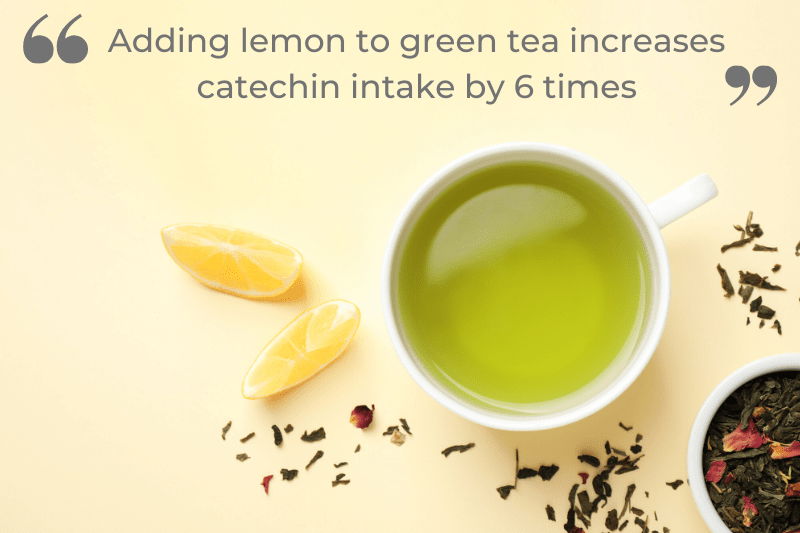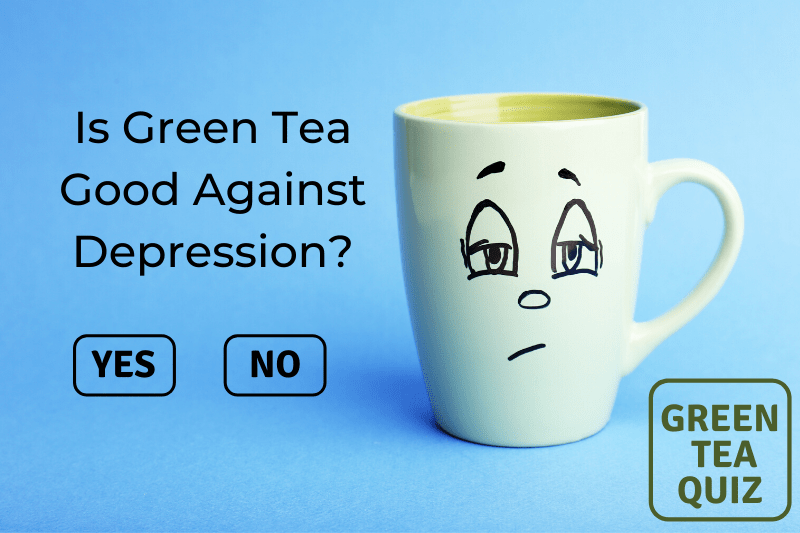IS GREEN TEA GOOD AGAINST DEPRESSION?
Depression is widely common yet it is a serious condition that can affect all aspects of your life, including health, mental, and emotional condition. It causes you to suffer from feelings of sadness and loss of interest. It can negatively affect your ability to function in personal, professional, and social life. If you or your loved one is suffering from depression, it is recommended to increase your intake of vitamin-rich foods. Foods rich in antioxidants, such as green tea can play an important role in improving your condition and helping you lead a healthier and better life.
GREEN TEA, ANTIOXIDANTS & DEPRESSION
Green tea is rich in antioxidants that strengthen the immune system and help fight diseases. It also helps in reducing cell damage from free radicals. Interestingly, this tea is among the most researched teas in existence.
Green tea has a unique amino acid called L-Theanine. Researchers have found it to be the key player in helping fight depression:
- L-Theanine has a natural calming or soothing effect
- It also slows down caffeine absorption
- Research studies have also indicated natural anti-anxiety properties
- Studies show that green tea has a direct influence on the nervous system, inducing calmness
It is capable of inhibiting a-amylase activity. This activity has been associated with stress.
FEELING DEPRESSED? CONSIDER TRADING YOUR COFFEE FOR GREEN TEA.
If you think your morning cup of coffee is giving you a great start to a day, you should consider switching to premium green tea for greater and healthier reasons. A research study covered by the American Journal of Clinical Nutrition found that drinking this tea regularly can reduce the symptoms of depression in older adults.
Some of the findings related to the study are as follows:
- The participants’ average age was 76 years
- Those who took higher levels of green tea showed the tendency of being nonsmokers and highly socially active
- The difference in impact on mild and severe depression symptoms was significant between those taking less than 1 cup and 4 or more cups of green tea with lemonper day
- Taking high amounts of green tea reduced reliance on antidepressants or risk of depression
- The anti-depression benefits of premium green tea were the same for both genders
- The same level of association could not be found when green tea was replaced with other forms of tea and coffee
New studies have concluded that the benefits eventually trickle down to the presence of L-Theanine. It has further been found to help fight off stress and anxiety in people suffering from these conditions. Stress, anxiety, and feelings of depression commonly occur in older adults. However, the symptoms are now also common among younger adults because of the changing lifestyles.
GREEN TEA & KOREAN SURVEY
There is a Korean Survey involving over 9,500 subjects that reports the anti-depressant benefits of drinking green tea. This study used the Korean National Health and Nutrition Examination Survey as the data source. The subjects included men and women of age 19 years and older. Those who took more than 3 cups of the tea experienced 21% lower levels of depression. The findings were dramatic even when the amount of tea taken was far less compared to the dose given in the study published in the American Journal of Clinical Nutrition.
IMPROVEMENT IN DEPRESSION & LEARNING ABILITIES
There is another noteworthy 2013 study published in the American Botanical Council that demonstrates the benefits of drinking green tea for fighting depression. This study also showed how the consumption also improved the subject’s learning abilities. The focus of this study was to see if the tea helped in restoring the Reward System in the brain and curing anhedonia.
Anhedonia is the root cause of the issue. Depression causes an inability in the patient to experience pleasure. This has been connected to the dysfunction of the Reward System. Some of the interesting facts of this study were as follows:
- One set of participants were given green tea 3 times daily for 5 weeks
- Another set was given a placebo, a cellulose
- The subjects had to play a game that offered a small financial reward
- The green tea group showed a dramatic increase in reward learning
The researchers concluded that drinking the tea helped repair the Reward System and cured depression and anhedonia.
ADDING LEMON TO GREEN TEA CAN HELP WITH ANXIETY

While green tea is an ‘elixir’ in itself, when taken with lemon, the health benefits become even more profound and vast. Drinking green tea with lemon helps in bringing out more of the antioxidants present in the tea. This has been published in the November 2014 edition of the Journal of Food Processing and Technology. The lemon also makes the antioxidants readily absorbable for your body. The citrus juice works by increasing the extraction of catechins present in green tea. In fact, the increase is by up to 6 times compared to drinking the tea without lemon. According to a study, increased presence of catechins in the body has been found to decrease both depression and anxiety.
Studies involving oil extracted from lemon show that it has powerful anti-depressant properties. So when you drink green tea with lemon, the combination of the two elements significantly increases the benefits against depression. Lemon works by modulating the levels of various hormones in the body, most notably serotonin, dopamine, and norepinephrine.
RESEARCH STUDY FINDINGS
There are many studies showing the benefits of inhaling the oil on depression. Then, there are a few sets of studies that have shown its benefits when taken orally as well. One such study involved animal subjects, using the Tail Suspension Test (TST). Researchers studied the effect of the oil on monoamines present in the brain. The study founded that the subjects that received the lemon extracted oil showed a significant increase in the concentration of serotonin, dopamine, and norepinephrine in the following parts of the brain:
- Striatum
- Prefrontal cortex
- Hippocampus
These findings have been associated with the antidepressant benefits of lemon. Thus, drinking premium green tea along with lemon can further enhance the anti-depressant benefits of the beverage.
Thus, there are clear scientific reasons for drinking green tea with lemon to achieve optimal anti-depressant benefits. Drinking the beverage regularly can bring about significant improvements in your health and life.







